General information
SUMMARY OF THE LIFE BAIE DE L’ AIGUILLON PROJECT
Duration of the project: 1st January 2016 to 30th June 2022
Project budget: 2 317 728 €
Funding:
European Union (60%)
French ministry of Ecological Transition and Solidarity (11%)
Other funders and beneficiaries (29%)
Beneficiaries:
Coordinating beneficiary
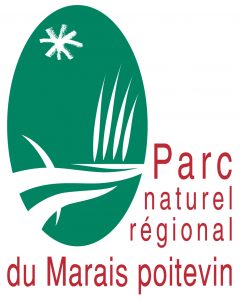 The Marais Poitevin Natural Regional Park (PNR): a joint syndicate formed by the two regions, Aquitaine Limousin Poitou-Charentes and Pays de la Loire, the three departments of Charente-Maritime, Deux-Sèvres and Vendée, member municipalities, EPCI’s (Public Institutions of Intercommunal Cooperation) and the Chambers of Agriculture. It is responsible for the implementation of the sustainable development project developed for the territory. Its missions include economic development, protection of the natural heritage, land use planning, environmental education and sustainable development.
The Marais Poitevin Natural Regional Park (PNR): a joint syndicate formed by the two regions, Aquitaine Limousin Poitou-Charentes and Pays de la Loire, the three departments of Charente-Maritime, Deux-Sèvres and Vendée, member municipalities, EPCI’s (Public Institutions of Intercommunal Cooperation) and the Chambers of Agriculture. It is responsible for the implementation of the sustainable development project developed for the territory. Its missions include economic development, protection of the natural heritage, land use planning, environmental education and sustainable development.
Associated beneficiaries
 League for the Protection of Birds (LPO): the largest conservation association in France (and Birdlife partner), which aims to protect bird species and their environment in France. The activities of the LPO revolve around three missions: species protection, conservation of sites (management of reserves), education and awareness.
League for the Protection of Birds (LPO): the largest conservation association in France (and Birdlife partner), which aims to protect bird species and their environment in France. The activities of the LPO revolve around three missions: species protection, conservation of sites (management of reserves), education and awareness.
 The French Biodiversity Agency (OFB): a public institution dedicated to safeguarding biodiversity. One of its priorities is to respond urgently to the issues concerning the preservation of wildlife. Created 1st January 2020 by Law 2019-773 of 24 July 2019, the French Biodiversity Agency is under the tutelage of the Ministry of Ecological Transition and Solidarity and the Ministry of Agriculture and Food. This new public institution is responsible for 5 complementary missions: knowledge, research and expertise on species, environments and their uses, environmental and wildlife health policing, support for the implementation of public policies, management and support for managers of natural sites and support for those involved and the mobilization of society.
The French Biodiversity Agency (OFB): a public institution dedicated to safeguarding biodiversity. One of its priorities is to respond urgently to the issues concerning the preservation of wildlife. Created 1st January 2020 by Law 2019-773 of 24 July 2019, the French Biodiversity Agency is under the tutelage of the Ministry of Ecological Transition and Solidarity and the Ministry of Agriculture and Food. This new public institution is responsible for 5 complementary missions: knowledge, research and expertise on species, environments and their uses, environmental and wildlife health policing, support for the implementation of public policies, management and support for managers of natural sites and support for those involved and the mobilization of society.
Objectives
1- RESTORING DEGRADED HABITATS OF THE BAIE AND THE POINTE DE L’AIGUILLON AND LIMIT THE NEGATIVE EFFECTS OF USE OF THE COAST
To create new areas of mudflats, dunes, brackish meadow, and salt marsh habitats and improve associated biodiversity,
- by the implementation of experimental work to remove ancient oyster farm structures in the bay
- by the restoration of natural areas and the protection of dune environments on the Pointe de l’Aiguillon
- by developments favouring better hydraulic management and moving back a sea defence on the Prée-Mizottière site.
2- UNDERSTANDING THE INTERACTIONS BETWEEN THE POITEVIN MARSH WETLAND AND THE AIGUILLON BAY
To orientate management strategies
- by improving knowledge related to wildfowl behaviour, water quality impact and sediment dynamics
3- RENDERING THE KNOWLEDGE GAINED AND THE RESULTS OF THE PROGRAMME'S ACTIONS
To raise awareness of the interest of coastal habitats, their issues and associated threats, and thus promote long-term management of these habitats
- by creating awareness tools aimed at the general public
- involving local decision makers in the processes (socio-professionals, elected officials, managers...)
- by encouraging the exchange of experiences by disseminating the positive results obtained in order to promote their being used on other sites
Partners
![]() The “Conservatoire du Littoral”, a public institution of the state, conducts a policy of acquiring land of threatened or degraded coastal natural areas, for conservation purposes and with the aim of making them accessible to the public. It then entrusts the management of these areas to local authorities or associations.
The “Conservatoire du Littoral”, a public institution of the state, conducts a policy of acquiring land of threatened or degraded coastal natural areas, for conservation purposes and with the aim of making them accessible to the public. It then entrusts the management of these areas to local authorities or associations.
The “Conservatoire du Littoral” is heavily involved in the protection of the Marais Poitevin, whether on its coastal part or important wetland areas, and works closely with local decision makers (nature reserve managers, state services, Regional Natural Parks, agricultural profession, marsh unions, communities, etc.).
In this context, and following the storm of 1999, the “Conservatoire du Littoral” acquired the Prée Mizottière farm. A project combining agriculture and biodiversity has been defined and allowed the installation of a young farmer. Managed by the farmer, with the support of the nature reserve team, this site is now one of the most important sites of the Poitevin marsh for waterbirds, and offers a complementary natural habitat to those present in the Aiguillon Bay National Nature Reserve.
Jean-Paul Rault, the Prée Mizottière farmer, uses the land for mixed-farming and stock rearing, following its acquisition by the “Conservatoire du Littoral”. The support of the farmer is necessary when implementing actions on the Prée Mizottière site.
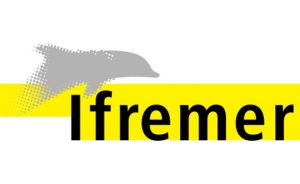 “IFREMER”, the National Institute for Ocean Science, a public industrial and commercial institution. The institute is involved in various research studies and responsible for several networks for monitoring and observing coastal waters, is important in the collection of data concerning the coast. The technical and scientific support of IFREMER will allow a better understanding of the hydraulic (quantitative and qualitative) functioning of the coastal zone.
“IFREMER”, the National Institute for Ocean Science, a public industrial and commercial institution. The institute is involved in various research studies and responsible for several networks for monitoring and observing coastal waters, is important in the collection of data concerning the coast. The technical and scientific support of IFREMER will allow a better understanding of the hydraulic (quantitative and qualitative) functioning of the coastal zone.
![]() The Vendée departmental Hunting Federation, a "Law 1901" association approved for the protection of the environment, has among its missions other that of enhancing the hunting heritage, the protection and management of wildlife and its habitats in the department, promoting and defending hunting and the interests of its members, that of developing awareness, education and technical support for the managers of the area’s natural habitats. It is in this capacity that the hunting federation wishes to participate in the follow-up actions involving wildfowl within the scope of the LIFE Baie de l'Aiguillon project. The development of the hunting heritage and the protection/management of wildlife are also of interest to the Vendée Hunting Federation.
The Vendée departmental Hunting Federation, a "Law 1901" association approved for the protection of the environment, has among its missions other that of enhancing the hunting heritage, the protection and management of wildlife and its habitats in the department, promoting and defending hunting and the interests of its members, that of developing awareness, education and technical support for the managers of the area’s natural habitats. It is in this capacity that the hunting federation wishes to participate in the follow-up actions involving wildfowl within the scope of the LIFE Baie de l'Aiguillon project. The development of the hunting heritage and the protection/management of wildlife are also of interest to the Vendée Hunting Federation.
It associates local wildfowl hunters with this work, notably the associations "Chasse Maritime Vendéenne" and "La Sauvagine Vendéenne".
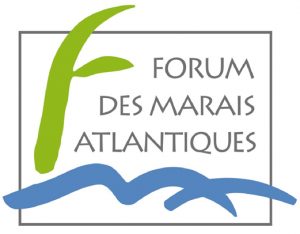 The Forum des Marais Atlantiques, a joint syndicate, is a structure that serves those involved in sustainable wetland management. Through its missions (spreading knowledge, methodological and technical support to project leaders, coordination of the network of wetland users), it is an essential partner of the LIFE Baie de l'Aiguillon project.
The Forum des Marais Atlantiques, a joint syndicate, is a structure that serves those involved in sustainable wetland management. Through its missions (spreading knowledge, methodological and technical support to project leaders, coordination of the network of wetland users), it is an essential partner of the LIFE Baie de l'Aiguillon project.
 The Gironde and Pertuis Sea Marine Nature Park, a marine natural park created 4th April 2015, contributes to sustainable resource management, while balancing the interests of commercial activities (professional fishing, aquaculture, shellfish farming, port and industrial activities, recreational activities), the quality of coastal waters and of that of the different habitats.
The Gironde and Pertuis Sea Marine Nature Park, a marine natural park created 4th April 2015, contributes to sustainable resource management, while balancing the interests of commercial activities (professional fishing, aquaculture, shellfish farming, port and industrial activities, recreational activities), the quality of coastal waters and of that of the different habitats.
The Aiguillon Bay lies within the perimeter of this Marine Natural Park. The actions of the LIFE Baie de l'Aiguillon project will permit the enlightening of the Park's management board on the influence of the catchment area on the ecological functioning of the bay and will thus contribute to the management guidelines of the Park set out in its management plan, including the preservation of water quality and the strengthening of "land-sea" links.
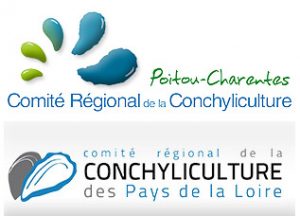 The Pays de la Loire and Poitou-Charentes regional shellfish farming committees, inter-professional organisations, represent the general interests of professional shellfish producers with local decision makers, other public and local authorities, or other related professions.
The Pays de la Loire and Poitou-Charentes regional shellfish farming committees, inter-professional organisations, represent the general interests of professional shellfish producers with local decision makers, other public and local authorities, or other related professions.
Shellfish farming, especially mussel farming, is a traditional activity in the Aiguillon Bay. The involvement of marine professionals in the project is essential. This is all the more important because the Aiguillon Bay has been affected by a large-scale mortality phenomenon since 2014. The actions of the project allowing a better understanding of the functioning of the bay therefore concern them directly.
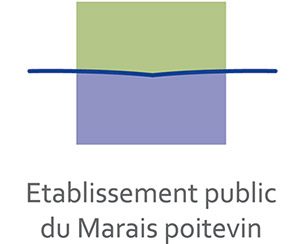 The Poitevin Marsh Public Establishment, is a state-run institution in charge of water management and biodiversity of the Poitevin Marsh wetlands and its catchment area. Since 2012, this institution has been the manager of the Natura 2000 site. In this capacity, it is responsible for coordinating the implementation of the actions in the Objectives Document. The COPiL (steering committee) is chaired by the establishment’s director. The Poitevin Marsh Regional Natural Park currently assumes its coordination.
The Poitevin Marsh Public Establishment, is a state-run institution in charge of water management and biodiversity of the Poitevin Marsh wetlands and its catchment area. Since 2012, this institution has been the manager of the Natura 2000 site. In this capacity, it is responsible for coordinating the implementation of the actions in the Objectives Document. The COPiL (steering committee) is chaired by the establishment’s director. The Poitevin Marsh Regional Natural Park currently assumes its coordination.
 The Regional Observatory of Coastal Risks (OR2C), in the Pays de Loire region, has the mission of pooling data, supplementing scientific information on coastal risks, and enhancing this knowledge. It is a project funded by the Pays de Loire region and implemented by the OSUNA (Observatory of Universal Sciences of Nantes Atlantic), Nantes University.
The Regional Observatory of Coastal Risks (OR2C), in the Pays de Loire region, has the mission of pooling data, supplementing scientific information on coastal risks, and enhancing this knowledge. It is a project funded by the Pays de Loire region and implemented by the OSUNA (Observatory of Universal Sciences of Nantes Atlantic), Nantes University.
And the municipalities of l'Aiguillon-sur-mer, Charron and Sainte-Radégonde-des-Noyers.


